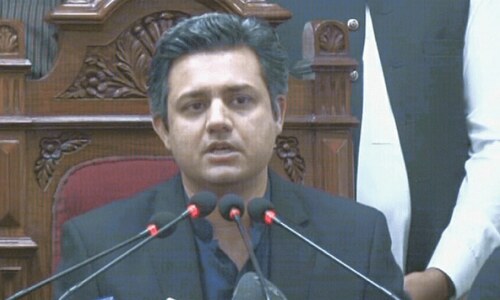ISLAMABAD: A total of 9,000 people suffering from gastroenteritis visited the Pakistan Institue of Medical Sciences (Pims) emergency department in the last month.
Pims media coordinator and gastroenterologist Dr Waseem Khawaja said people should be careful, due to the rising temperatures and onset of Ramazan.
Dr Khawaja said nearly 300 people have been visiting the hospital’s emergency department every day.
“Gastroenteritis is caused by bacteria, and results in an acute form of diarrhoea and vomiting. The patient usually takes one to six days to recover,” he said. “Children are at particularly high risk of contracting the disease because they buy substandard food and drinks.”
He added: “[In addition to] reheated meat dishes, bakery products and improperly prepared food can also cause gastroenteritis.”
A patient can be treated by replacing water lost from the body, and drinking water is the finest way to regain the water level in patients, particularly children, Dr Khawaja said.
“The best prevention is improved sanitation. Food should be properly cooked and stored, junk food and drinks should be avoided. Hands should be washed before eating anything and after using the toilet,” he said.
He added that those fasting should avoid exercise during the day and rest when possible. They should limit physical activity during fasting hours to avoid dehydration. Dr Khawaja said the number of patients is expected to increase further in the coming days because people tend to overeat at iftar.
He added that fasting is very challenging for diabetic individuals, and they are advised to break their fast if their glucose level falls.
Every patient’s management plan should be individualised depending on his or her diet, lifestyle, medication and blood glucose control in order to minimise the complications associated with fasting.
Dr Khawaja said that approximately 4.6pc of diabetics are Muslim, and it is estimated that around 50 million Muslims with diabetes fast in Ramazan every year.
“A number of people who choose to fast during Ramazan despite the advice of their doctor create medical challenges for themselves and their healthcare providers,” he said.
“It is important for diabetes patients who wish to fast during Ramazan to make the necessary preparations to fast as safely as possible,” he added. He said it is important to test blood glucose levels and doing so does not break the fast. He also suggested including fresh fruit, vegetables and yoghurt in meals and limiting the number of dates to two or three.
Published in Dawn, May 29th, 2017













































Dear visitor, the comments section is undergoing an overhaul and will return soon.